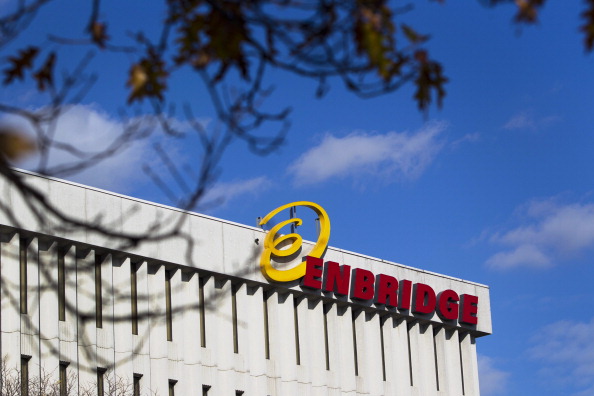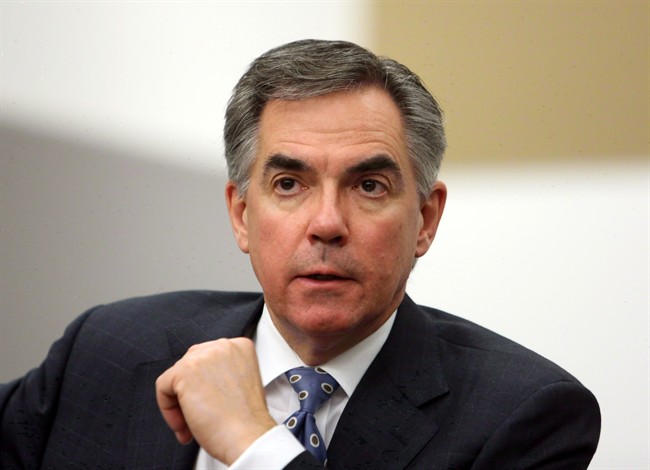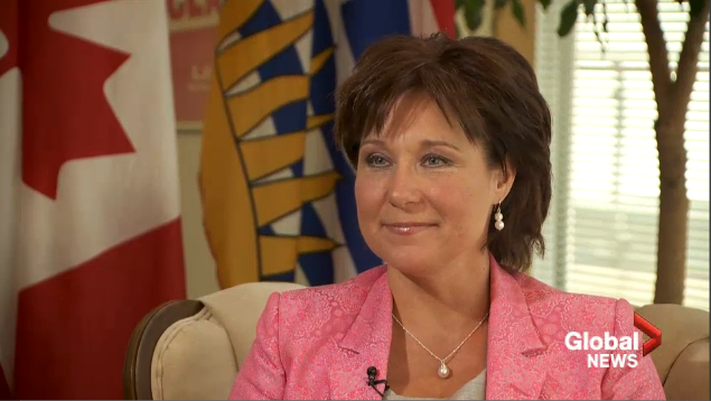Watch above: The federal government, as expected, has approved the controversial Northern Gateway pipeline that would carry Alberta oil to the B.C. coast. Vassy Kapelos has the details.

Who benefits from the federal government’s de-facto approval of Enbridge’s $6.5-billion Northern Gateway pipeline? Perhaps more importantly, who doesn’t?
It’s not exactly clear cut. Stephen Harper’s Conservatives are proponents of the project, but it also faces a myriad of opposition, making it tricky political territory.
The Conservatives had already delayed its decision by six months, following a review panel that made 209 recommendations.
The government announced Tuesday it has accepted the recommendations, and Enbridge must show how conditions will be met and undertake further consultations with aboriginal communities.
“Today constitutes another step in the process,” Natural Resources Minister Greg Rickford said in a release.
“Moving forward, the proponent must demonstrate to the independent regulator, the (National Energy Board), how it will meet the 209 conditions.”
The NDP and Liberals are adamantly opposed.
“This pipeline is too risky for the communities,” NDP deputy leader Megan Leslie said after the decision’s release.
“The battle is not over.”
NDP leader Tom Mulcair reacts
Liberal leader Justin Trudeau said he was disappointed with the decision.
“If I win the honour of serving as prime minister, the Northern Gateway pipeline will not happen,” he said.
WATCH: NDP, Liberals blast federal government over Northern Gateway decision
The $6.5-billion project would see two pipelines transporting bitumen and natural gas from Kitimat, B.C., to Alberta and back.
“The reason why you want the pipeline to the coast is the cheapest shipping option to get you to world markets,” said Andrew Leach, the Enbridge Professor of Energy Policy at the University of Alberta. (Leach notes the position is donation-based, and the company doesn’t vet his statements.)
Here, we take a look at the winners and losers of pipeline approval – for now.
Winners:
Enbridge Inc.: The project lets the Alberta-based energy company expand into China. Although it’s an equity partnership, Enbridge stands to benefit substantially. At stake? Oh, just a few hundred billion dollars.

The Conservative government: Prime Minister Stephen Harper’s pro-business government can tout the economic and job benefits of the pipeline, along with the opening of Chinese markets to Canada’s bitumen. Just in time for the 2015 election, too.
Alberta: The oil-rich province is about to get a lot richer after royalties from the proposed pipeline start pouring in. And if Jim Prentice is elected leader of the Progressive Conservatives and premier of the province, he can be crowned kingmaker of the deal if he succeeds in negotiating with First Nations and other opponents.

Losers:
British Columbia: The B.C. government has declared its opposition to the pipeline and residents of Kitimat, where the port would be built, voted to reject the project in a non-binding plebiscite. “They’re certainly taking on more risks, since more of the pipeline is in the province and marine transport is in the province,” Leach says. Premier Christy Clark has called for five conditions and a greater share of revenues; it’s just not entirely clear how she’s going to get that.

First Nations and environmental groups: B.C.’s aboriginal groups have been vehemently opposed to the project, threatening disruption if it is approved. The project already faces lawsuits, and Supreme Court challenges are expected. Although the government says it only approves projects deemed safe, many take issue with the way the review panel deemed it safe in the first place. In its decision, the government says consultations with First Nations are part of the 209 conditions, but that likely won’t satisfy the opponents.

B.C.’s Conservative MPs: Facing deep opposition to the pipeline, the province’s 21 Conservatives may get an earful from voters following the project’s approval. High-profile voices, such as Port Coquitlam MP Industry Minister James Moore, have largely been silent on the issue.
With files from the Canadian Press

Comments